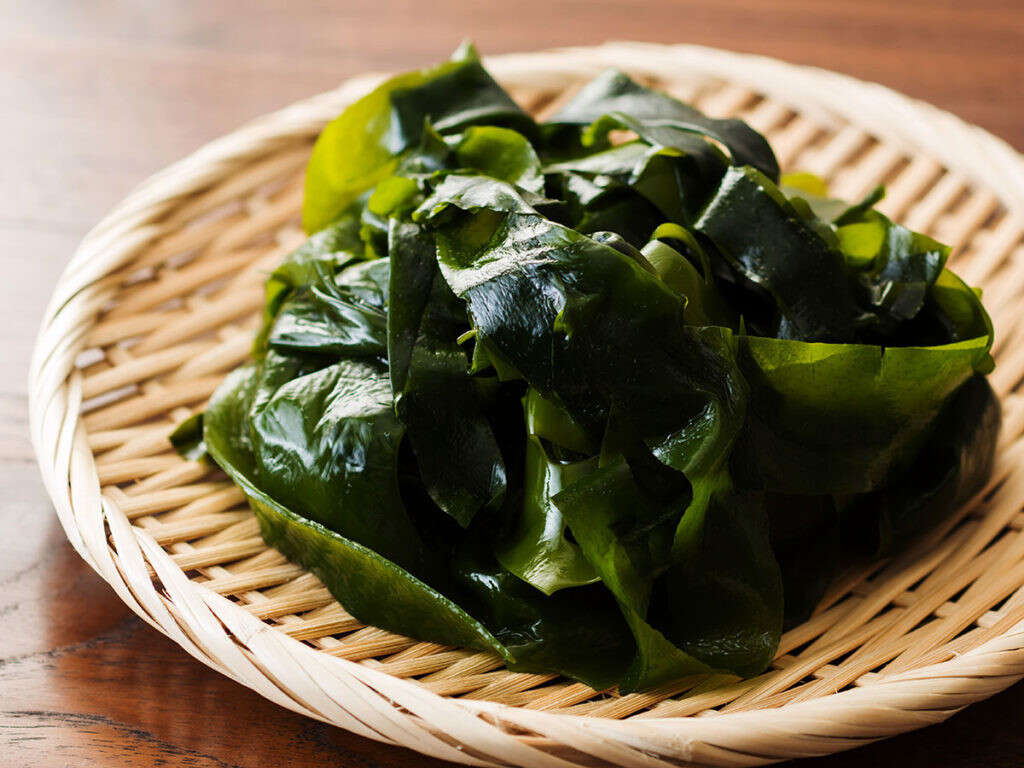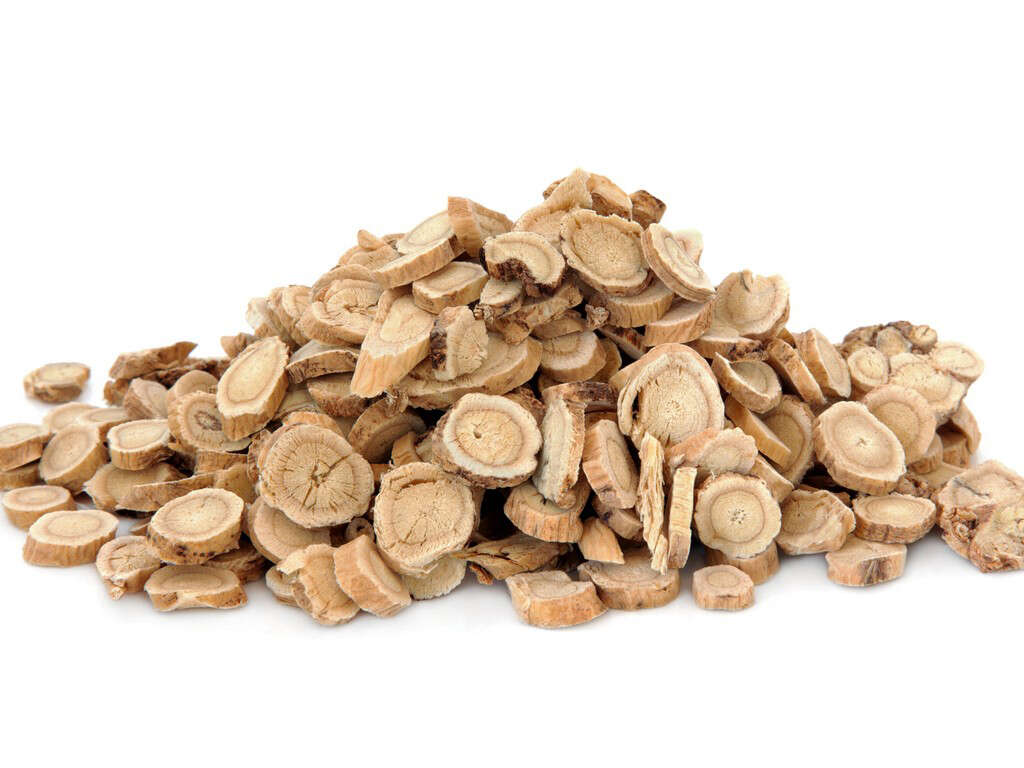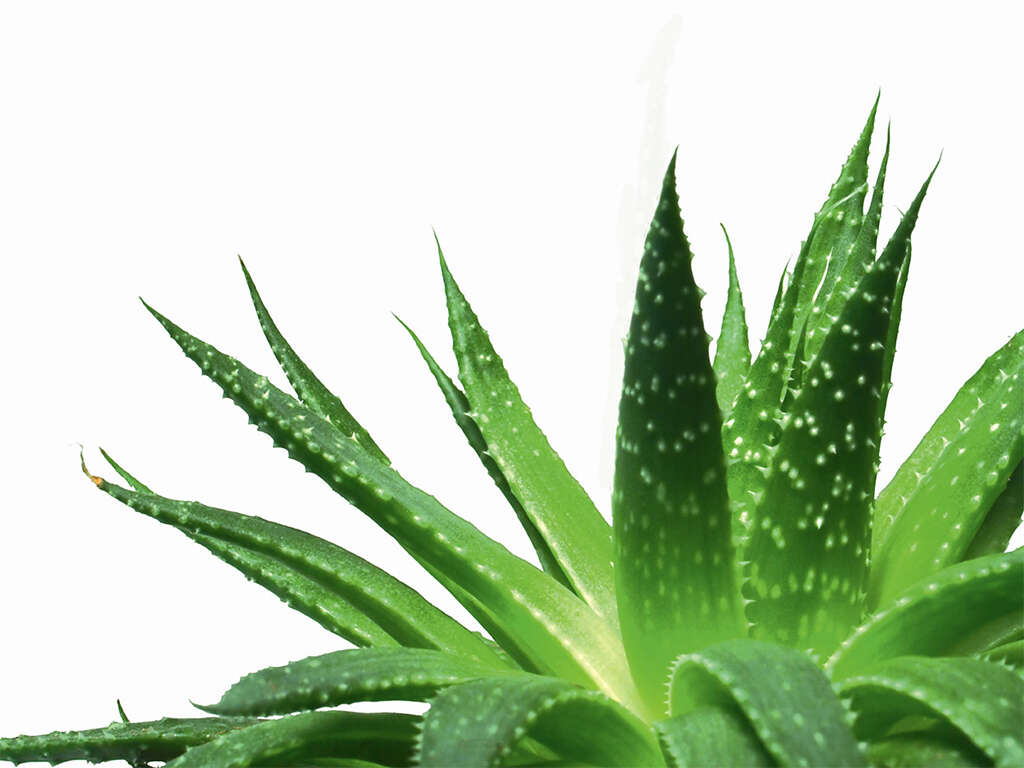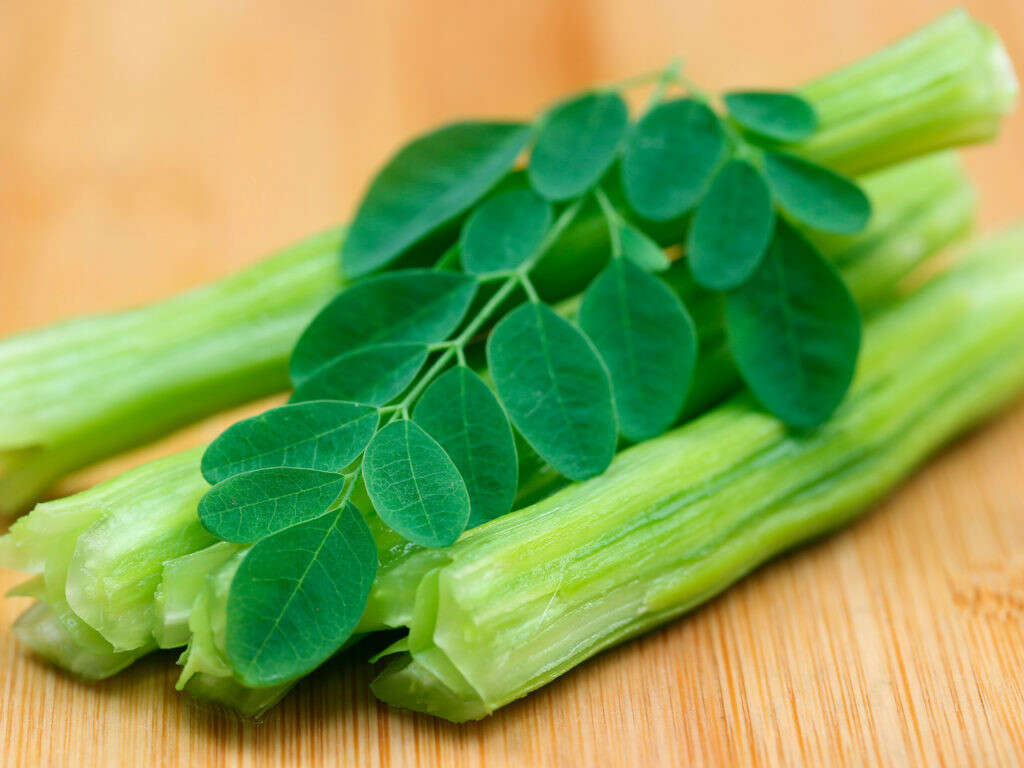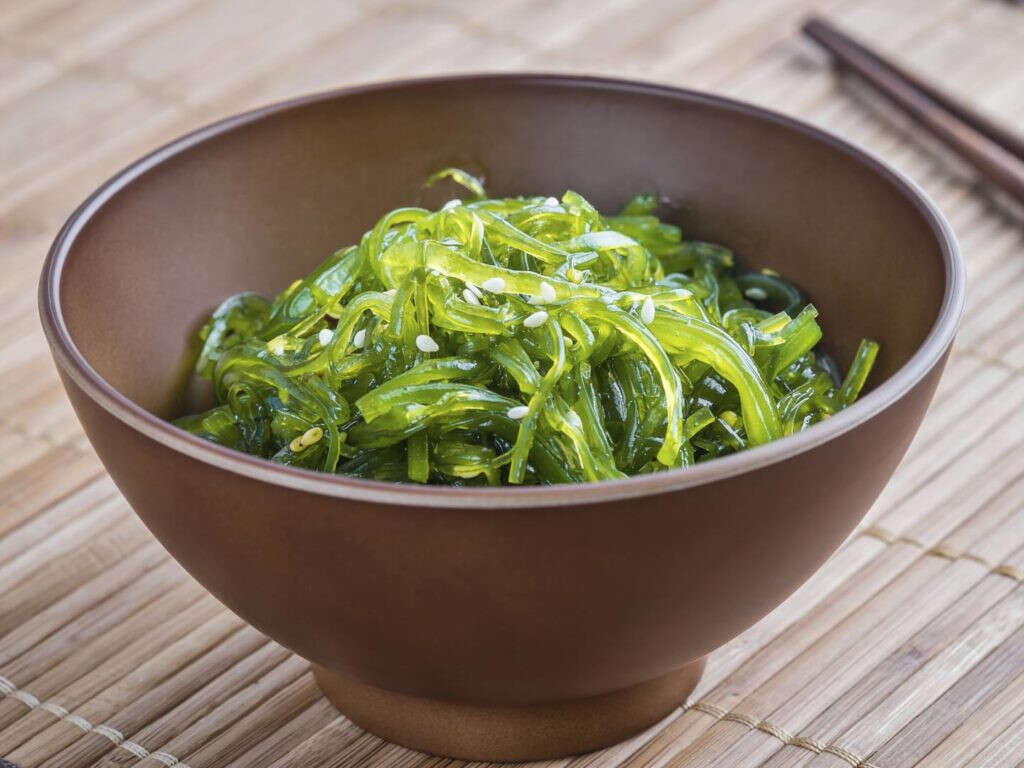10 Benefits of Saffron
Saffron is a small, bulbous spice acquired from a flower called saffron crocus. It is painstakingly handpicked and carefully cured over heat to deepen its flavor profile. The process requires so much labor that it makes saffron one of the most expensive spices in the world. This valuable culinary ingredient is mainly produced in Iran. Spain is the largest importer of the spice.
Saffron has a variety of beneficial properties. It can be used as an aphrodisiac or it can be used to bring on menstruation. The most impressive health benefit of saffron is its ability to improve respiratory health and immune function.
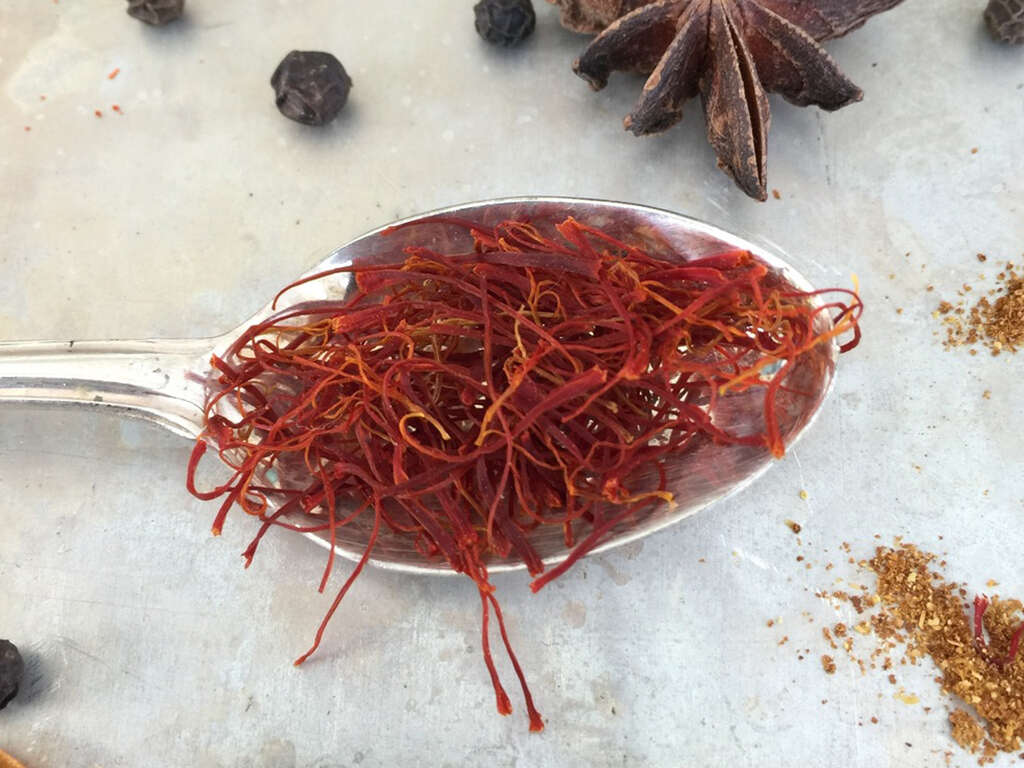
Saffron Benefit #1: Helps Protect against Cancer
Saffron contains a carotene called crocin, which contributes to its golden color. Research suggests that crocin can trigger cell death (also known as apoptosis) in a variety of cancers, including leukemia, ovarian carcinoma, colon adenocarcinoma, and soft tissue sarcoma.
Saffron has over one hundred active components that inhibit malignant cancer cells without harming normal cells. The antioxidants found in saffron neutralize free radicals, which are by-products of cell metabolism. This boosts the health of the immune system and prevents cancer from developing and spreading.
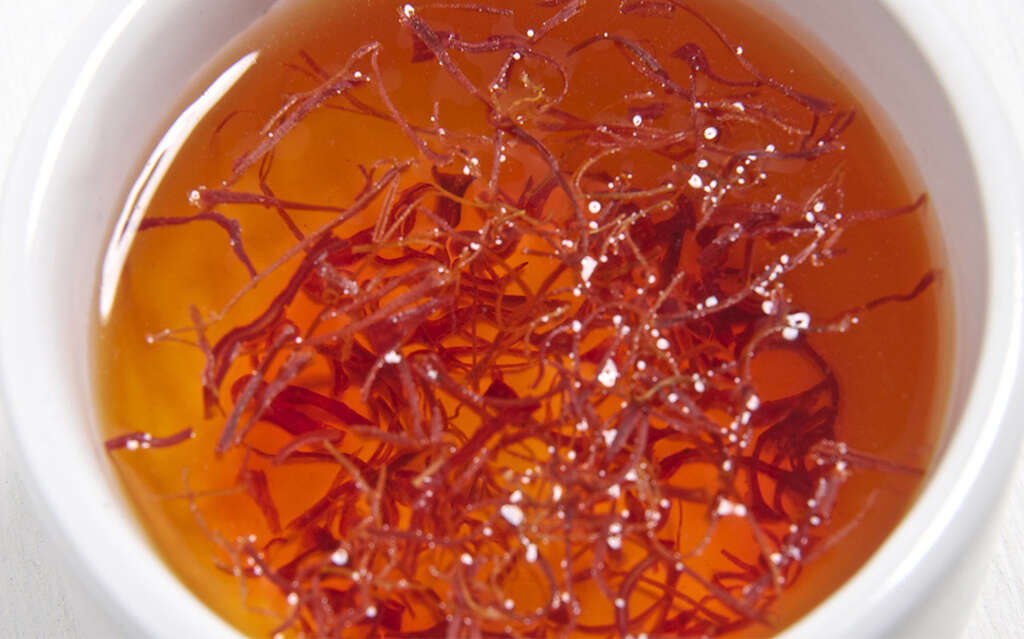
Saffron Benefit #2: Relieves Anxiety
Several research studies confirm that saffron relieves mild depression and helps with anxiety when it is regularly added to the diet. Saffron contains many active compounds that stimulate the endocrine system, which affects hormonal balance and overall health.
Studies have shown that Prozac is just as effective as saffron and curcumin when used as an antidepressant. One particular study showed that saffron alleviated feelings of social phobia and mild depression in young people. This study concluded that taking standard saffron extract for eight weeks significantly improved symptoms, according to the adolescents who participated.
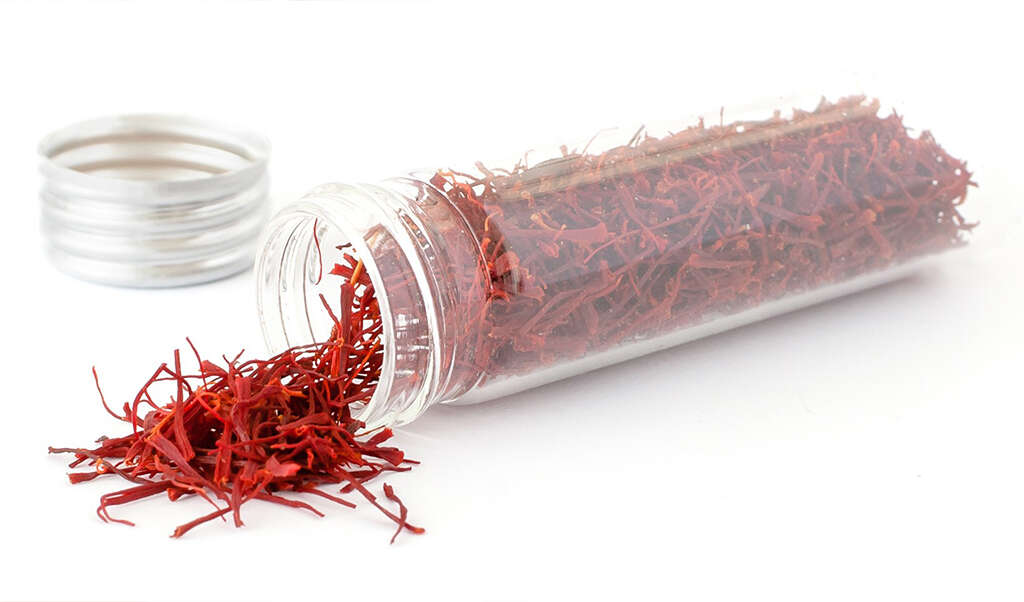
Saffron Benefit #3: Improves Bone Strength
Some minerals in saffron are linked to the body's ability to absorb calcium. Maximizing calcium absorption improves bone mineral density and inhibits conditions like osteoporosis. Calcium moves from the small intestine to the blood and then is transported to bone and other tissues.
However, not all calcium that is ingested through food and supplementation is absorbed in the body. Adding saffron to foods that contain calcium would provide optimal nutrition since saffron increases calcium absorption.

Saffron Benefit #4: Improves Nerve Function
Saffron contains high amounts of vitamin B6, which helps the nervous system to run smoothly and prevents dangerous disorders. Moreover, a study done on rats with withdrawals found that saffron mitigated symptoms of pain sensitivity, which suggests that saffron may play a role in mediating pain. However, this has yet to be confirmed in human subjects.
Another study done on rats demonstrated that a combination of saffron and vitamin E improves the function of injured sciatic nerves. Improvement of injured peripheral nerve function was observed when oxidative stress was inhibited.
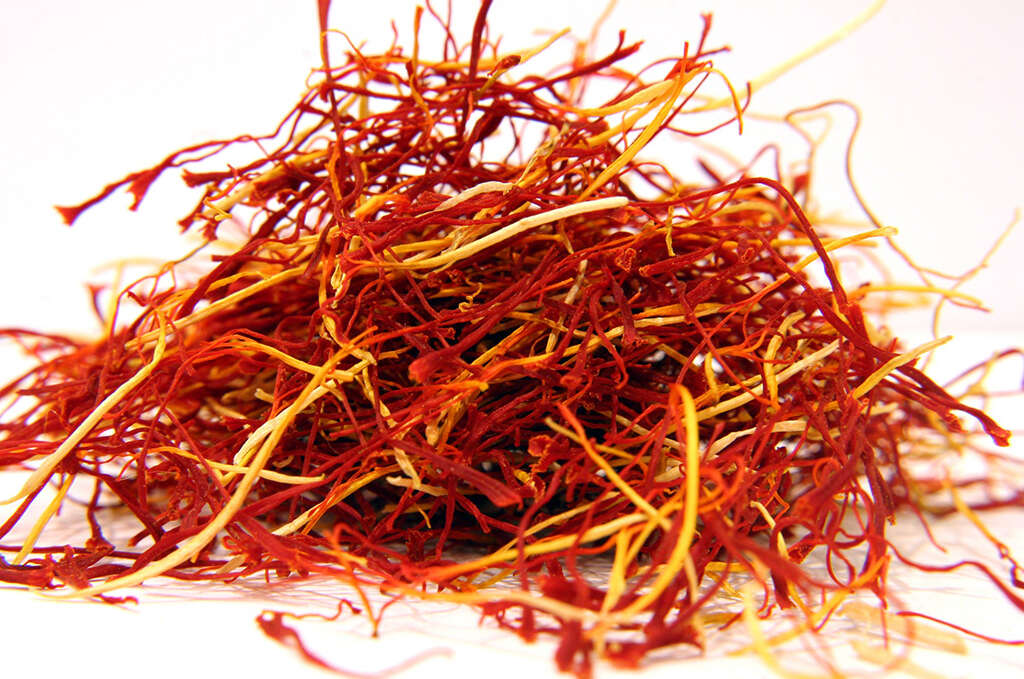
Saffron Benefit #5: Treats Inflammation
Saffron can be used as an oil or cream. It is applied to the skin topically to relive aches, pains, and inflammatory discomfort. Many people who have injuries or who suffer from arthritis, gout, and other inflammatory diseases use saffron creams as a remedy for pain, swelling, and stiffness. The oil speeds up the healing process of bruises as well.
The crocin found in saffron is the most active carotenoid present in the flower, and it has anti-arthritic qualities. In one study, enzymes and inflammatory mediators, such as interleukin 6, were inhibited, thus significantly reducing joint inflammation.
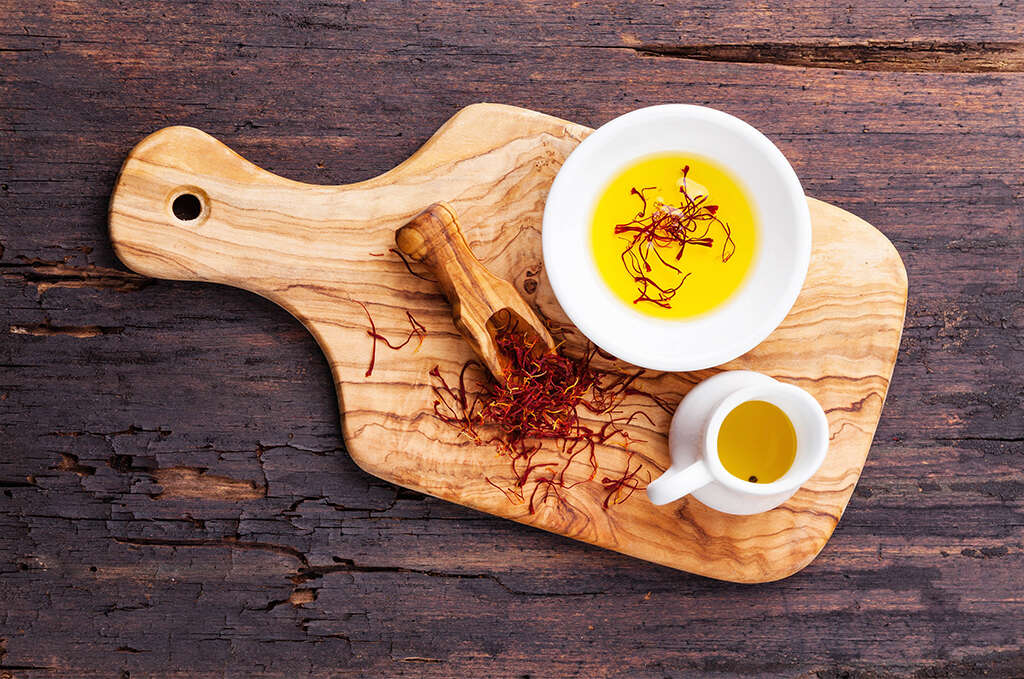
Saffron Benefit #6: Helps Control Diabetes
Significant levels of manganese are found in saffron. Manganese can help the body balance blood sugar levels. Maintaining the levels of blood sugar in the body can also help regulate the amount of insulin released from the pancreas. Thus, a person is less likely to develop type 2 diabetes and more likely to manage symptoms if already afflicted.
Furthermore, research suggests that saffron has possible antidiabetic properties and potential therapeutic effects on those who have diabetes. The combination of resistance training and saffron consumption significantly reduced the cholesterol levels of diabetic rats.
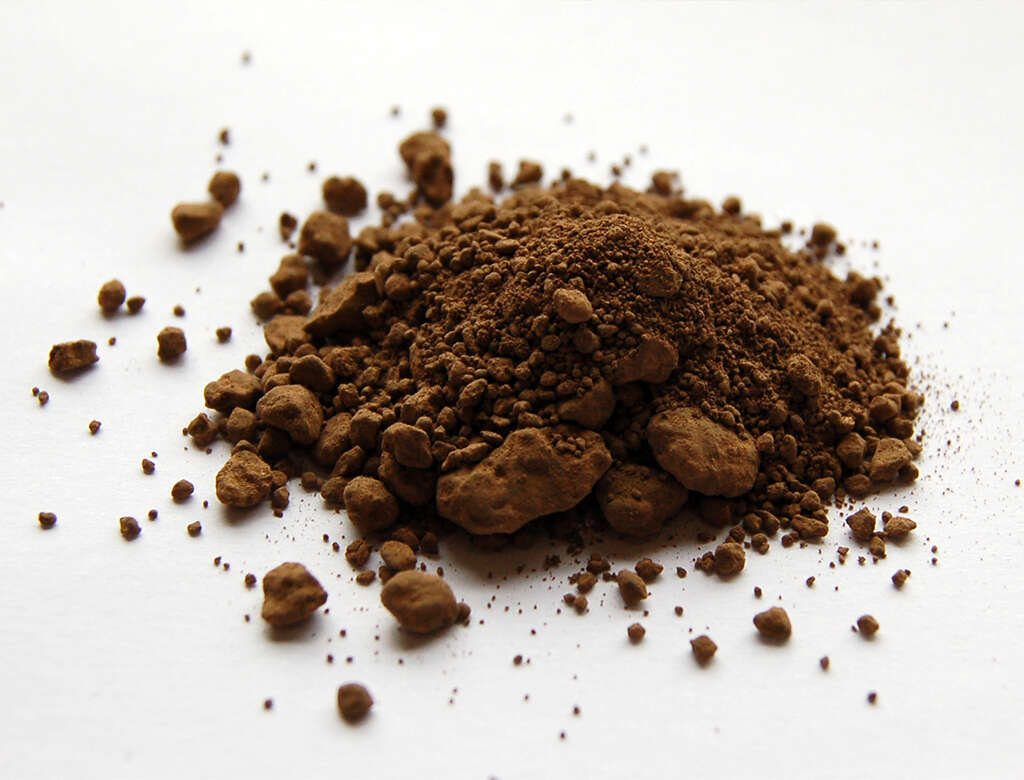
Saffron Benefit #7: Promotes Heart Health
For years, saffron has been used to improve blood circulation and cure bruises. According to Chinese medicine, the active ingredient crocetin may lower triglycerides and help treat atherosclerosis. Saffron also contains an antioxidant called safranal, an efficient free radical scavenger that gives saffron anti-inflammatory properties.
One research study reviewed the beneficial effects of saffron on cardiovascular health. It found that saffron lowered cholesterol levels in animals by as much as 50 percent. Also, the antioxidant properties of saffron helped maintain healthy arterial walls and blood vessels. The study concluded that saffron might be one of the best supplements for cardiac health due to its cholesterol-lowering benefits and anti-inflammatory properties.

Saffron Benefit #8: Works as an Aphrodisiac
Saffron is popularly used as an aphrodisiac in its native land, Southwest Asia. One study observed a group of men who consumed 30 mg of saffron per day for four weeks. The men experienced greater sexual function than those who were given a placebo. The study concluded that saffron is a tolerable treatment for erectile dysfunction. Another study examined women and observed that saffron effectively improved arousal.
However, the effect of saffron's aphrodisiac properties on those who are not suffering from depression is inconsistent. Further studies on larger samples are recommended to understand the potential effects of saffron.
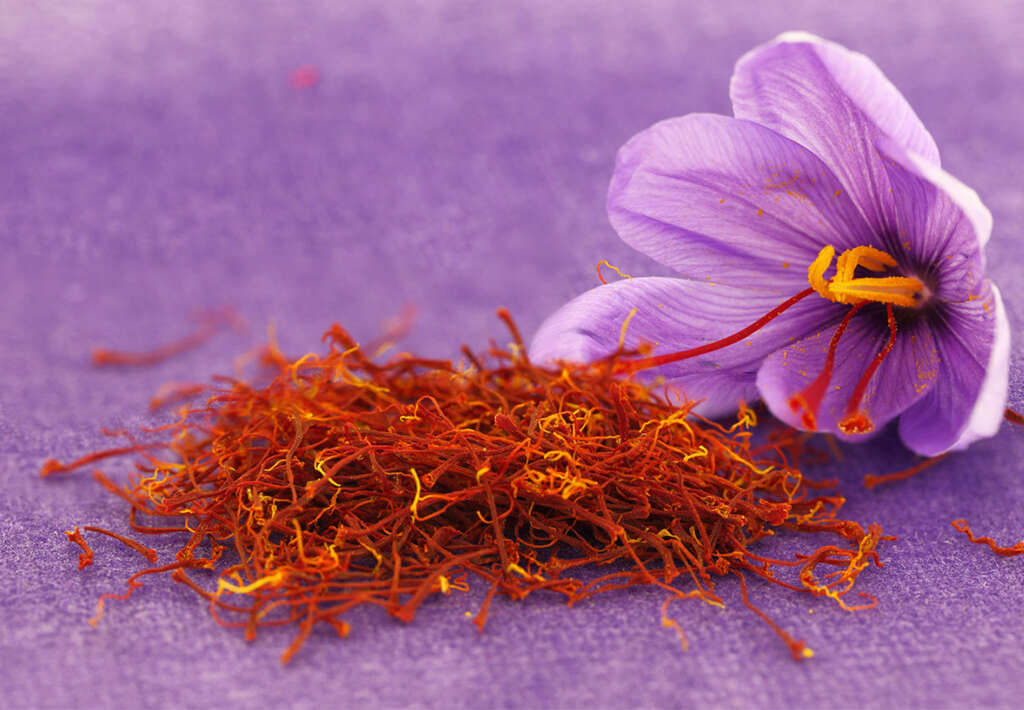
Saffron Benefit #9: Enhances Vision
There have been several studies on the vision-enhancing benefits of saffron. Scientists have discovered that saffron improves visual acuity significantly. By supplementing with saffron and alpha-carotene, the eyes can be protected before visual loss occurs.
For example, macular degeneration is the leading cause of blindness for Americans over fifty years of age. People with the highest intake of carotene had a 32 percent lower risk for developing age-related macular degeneration. Saffron can also help prevent the breakdown of light-sensitive cells in the center of the retina. One study suggests that 20 mg of saffron per day improves the light sensitivity of retinal cells in early age-related macular degeneration.
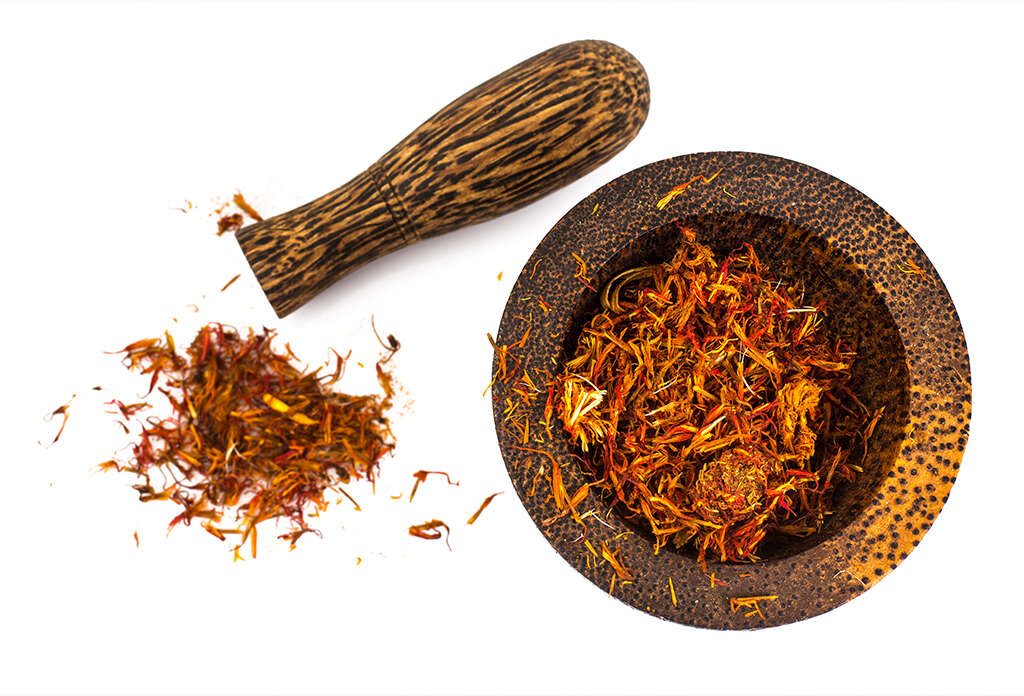
Saffron Benefit #10: Helps Reduce Acne
Saffron is very beneficial to the skin. It is rich in vitamins and minerals, and can lighten the skin by reducing the melanin content of the skin layers. It also helps reduce acne scars; improve dull, shallow complexions; and treat irregular, patchy skin.
Several companies use saffron as an ingredient in skin care products and creams. Saffron face products can significantly minimize pigmentation in blotchy and uneven skin.




